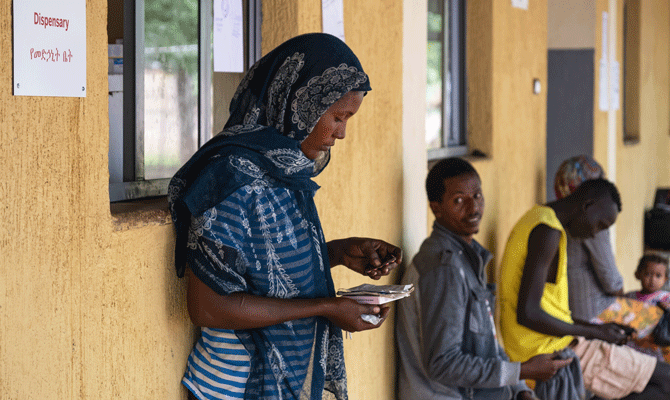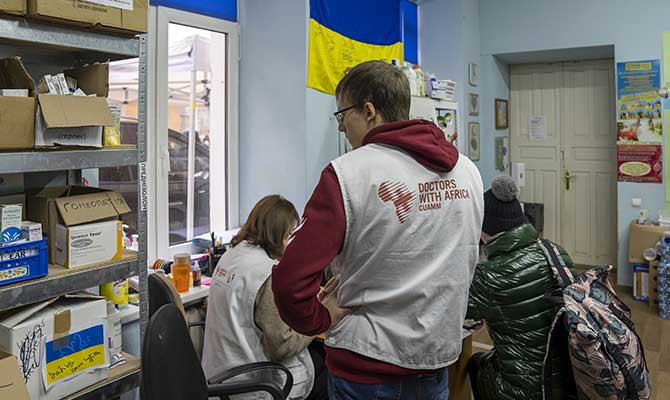World Hypertension Day reminds us how all chronic diseases need treatment, constant and integrated monitoring because they often intervene together with other diseases, such as diabetes. Today, special attention goes not only to primary health care systems that make it possible to monitor them, put patients on treatment and follow them with community-based treatment (as Cuamm does in Beira in Mozambique, Luanda in Angola, or Ethiopia), but also to the many people who are displaced in their own country or refugees abroad. They are the most vulnerable: in moving around they almost always lose their medical records, they cannot take their treatment with them, they have no medical reference, so they find themselves uncovered for a good period of time, both therapeutically and for medical check-ups.
Doctors with Africa Cuamm follows these patients in Africa, where most of the internally displaced people and refugees in other countries are. We find constant crises in northern Mozambique, where there are internally displaced people in Cape Delgado province or in Ethiopia in Gambella province, where South Sudanese people have found refuge. As they leave the communities and the society in which they live, they do not have health referrals, as well as the ability to access adequate health services, to buy medicines or have access to guaranteed medicines on a consistent basis.
Thoughts also go out to the people of Ukraine and Moldova where we are currently operating due to the ongoing crisis. In Ukraine so many people have fled areas of acute conflict to take shelter in calmer areas, where we have structured a system of medical check-ups and provision of essential medicines. In Moldova, many of the Ukrainian refugees are meeting medical teams on the ground with chronic illnesses, including hypertension and diabetes.
Hypertension, like so many chronic diseases, is a growing problem in Africa. Our commitment is to strengthen health systems, in partnership with local authorities, by enhancing services with a view to sustainability and system growth to provide people with adequate treatment throughout their lives.
In Africa, hypertension is also a problem in adulthood. It is noted to be slightly earlier due to malnutrition and is an increasingly common condition. Since it is a chronic situation, following diagnosis it must be followed throughout life and becomes a major challenge for weak systems. That is why prevention is a key element in all Doctors with Africa Cuamm programs, to prevent all its effects. Sometimes it is too late to get treatment especially in weak health systems. Nutrition and physical activity are also challenging practices in settings where there are refugees, no security, no adequate environmental conditions. Some large cities like Luanda in Angola do not allow for healthy living. In addition to this, there remains the problem of early diagnosis: sometimes all it would take is to change the diet in time and the patient could already receive a benefit, even before giving a treatment that they then have to follow for life. Medical screenings are important for this. Unfortunately, in Africa the more acute effects of hypertension, such as strokes, are difficult to treat, so prevention becomes crucial.
Andrea Atzori, international relations manager





